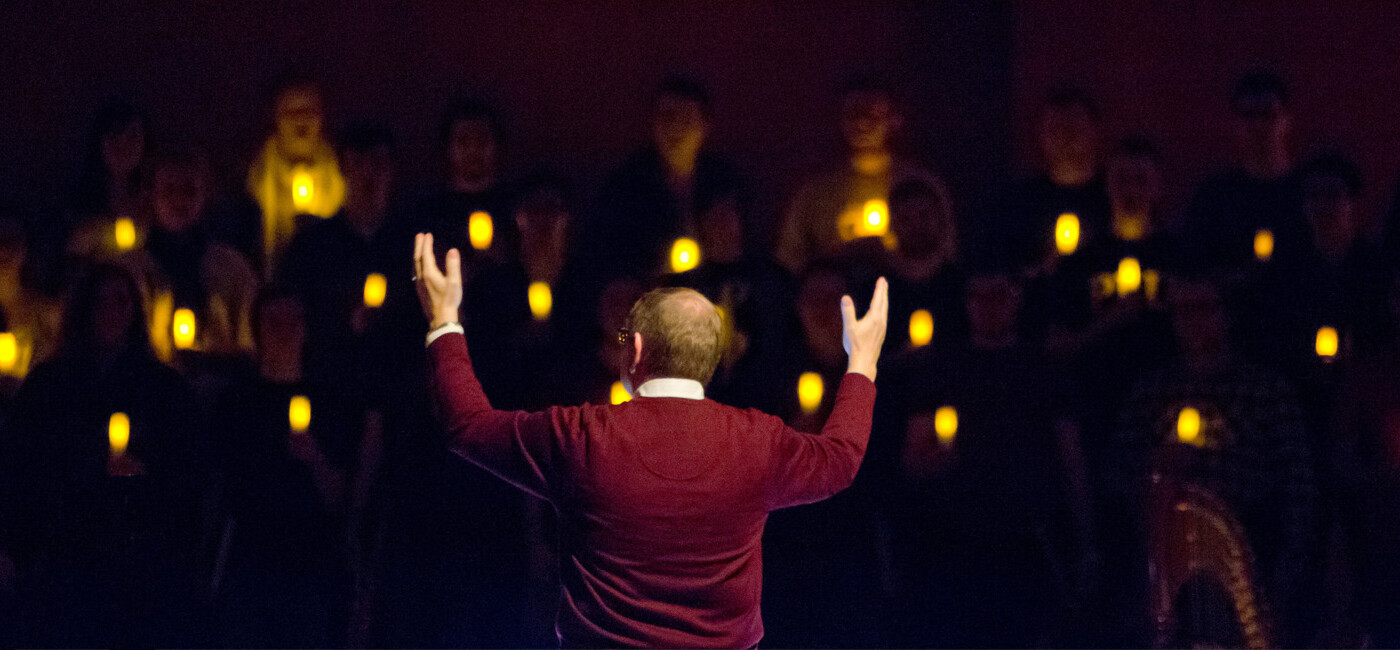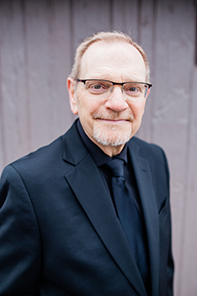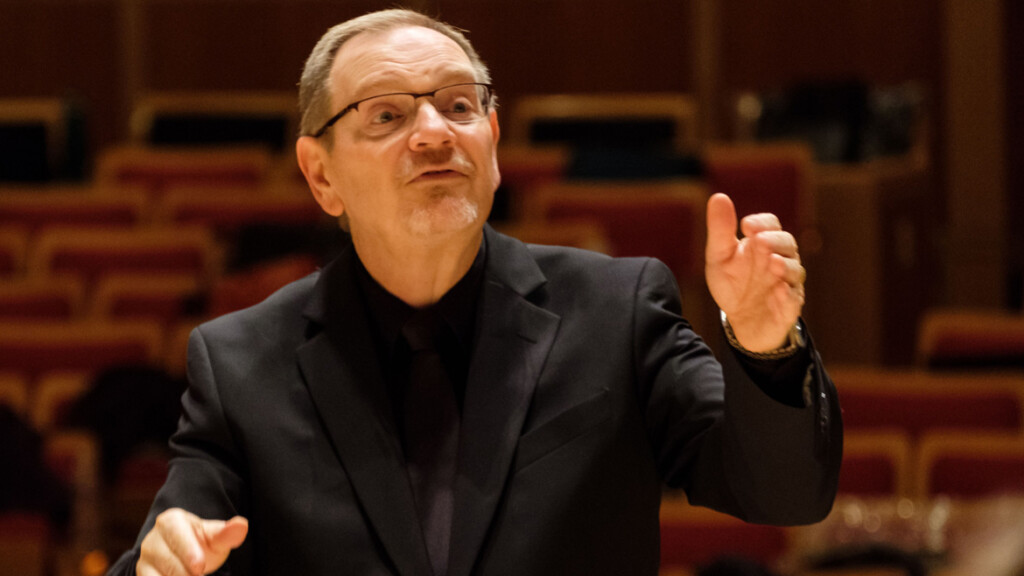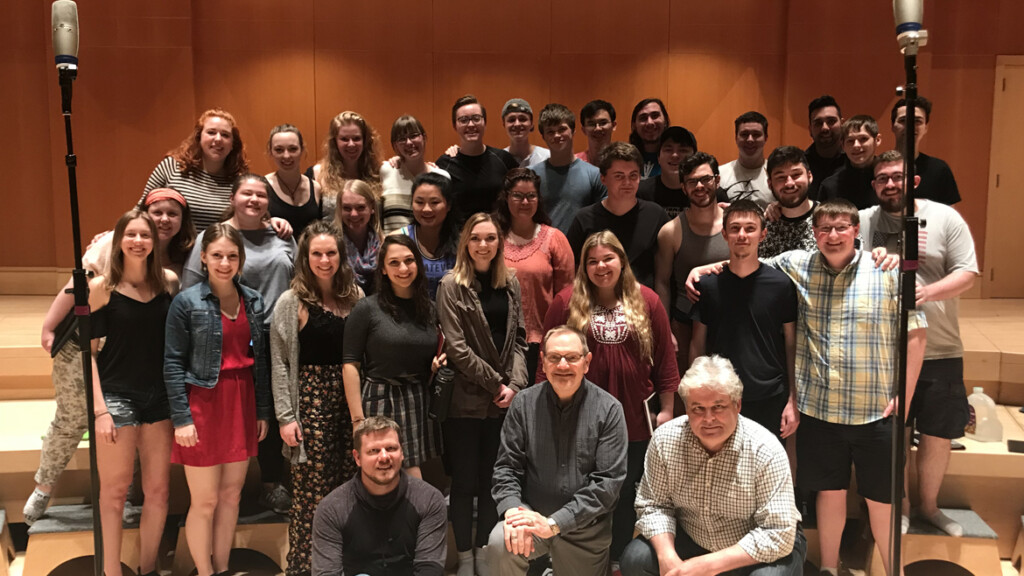Faculty Feature: Meet Dr. Richard Nance, Professor of Music and Director of Choral Studies

 What is your educational background?
What is your educational background?
I received my Bachelors of Music Education (1977) and Master of Arts in Choral Conducting (1982) from West Texas State University (now West Texas A&M) in Canyon, Texas. I received the Doctor of Musical Arts in Choral Conducting from Arizona State University in 1992.
Why did you want to teach at PLU?
As a choral musician I was well aware of the fine choral tradition at Lutheran colleges around the country. I remember seeing the Choir of the West at a National ACDA Convention in the early 80s and I was impressed. I had been in the Southwest for long enough and an opportunity came up to teach at PLU. The prospect of moving into a choral position at a Lutheran college located in a completely different, beautiful part of the country was very appealing to me. Aside from marrying my wife, Patti, it was the best move I ever made!
What is your favorite class to teach and why?
I love teaching all my classes! Obviously, conducting the Choir of the West is very inspiring and challenging—every single day. The students are so talented and they work incredibly hard. We have established a culture of positive work habits and support for each other, and it really pays off. Students coming into the Choir each year understand that the bar for great work ethic and sense of community is set very high.
I also love teaching University Singers. It’s exciting to see some of the new students develop their vocal ability and musicianship. There are also singers in that group who are very busy with their majors and just want to sing for fun without a big time commitment. I love seeing them enjoy what they do for fun and relaxation.
Also, conducting classes are a blast! My favorite part is seeing the “lights come on” with students in Conducting 1 who are experiencing conducting gesture for the first time. Conducting 3 requires students to synthesize everything they have learned as collegiate musicians as they focus on learning to teach in the rehearsal process. It’s extremely challenging for many students, but it’s very rewarding to see them develop into the next generation of choral conductors.
What should potential PLU music students know before they apply to PLU or declare the major?
It’s very important to learn to make music at a deeper level than just learning it by rote. To really succeed as a PLU music student, students have to learn to read music well, know something about the theory behind musical structure, and work at developing their instrument, no matter what that is. I think it’s even better if they can perform on more than one instrument—voice/piano, voice/violin, voice/trumpet—it helps deepen your musical understanding. Students who display pride and dedication to their work and great organizational skill do very well. And finally, be a team player!
In your time at PLU, what have you learned from your students?
I think I have learned that as important as making music at a high level is, it’s also important to make deep personal connections. Those make the music-making even better! All of my students are so different. I’ve learned that connecting with them one on one, letting them know I am empathetic and really care about them, is the best way to reach them and develop them as musicians.
What do you hope your students take away from your classes?
A fantastic musical experience that inspires them to be lifelong learners/consumers of high quality music. And relationships with myself and their fellow students that will last a lifetime. I think of my mentors all the time, and always in a positive way. I hope I am providing that sort of positive experience for my students, one they will always remember with fondness.
Just for fun!
Cats or dogs?
Two dogs: Gidget (Welsh Corgi) and Baxter (Huge Shepherd Mutt)
Coffee or chocolate?
Oh definitely coffee!
French fries or hash browns?
Fries – but I can’t really have them too much, they’re fattening!
Mac or PC?
Mac
Instagram or Twitter?
Huh? I barely do Facebook!
Why did you decide to study music? What sparked your interest in music and how did your academic path and career develop from there?
My mom said I could sing the theme from the “Mickey Mouse Club” before I could talk! In elementary school and junior high I was fortunate to participate in well developed music programs. I had especially great choral teachers in high school, where Ben Canfield inspired me to go into music as a career.
When I was in 9th grade I went to a summer music camp and watched Dr. George Umberson teach there. I remember thinking “I don’t know much about this man, but I want to do what he’s doing.” I thought I was following Dr. Umberson when I started looking at colleges and he had moved to West Texas State – little did I know that he was the Chair of the Music Department there and the Director of Choral Activities was a young man named Hugh Sanders. Luckily for me I got the chance to work with two great giants in the choral field. I also worked with David Stocker and Douglas McEwen at Arizona State when pursuing my doctorate—both had a huge influence on me.
 Tell us a few fun experiences, professional or personal, that you’ve had since you began teaching at PLU.
Tell us a few fun experiences, professional or personal, that you’ve had since you began teaching at PLU.
Oh, too many to count! I’ve been at PLU for 28 years! All the performances, all the tours, the success at European competitions, performances for national and regional conferences, huge Christmas concerts at Benaroya Hall in Seattle and sold out audiences at home, recording projects like “There Will Come Soft Rains”… I could write volumes.
What makes you proud to be a PLU faculty member?
Knowing that I work in such a supportive place, as part of a very talented and cohesive faculty, and that our students are receiving the best possible undergraduate music education.





Social Media